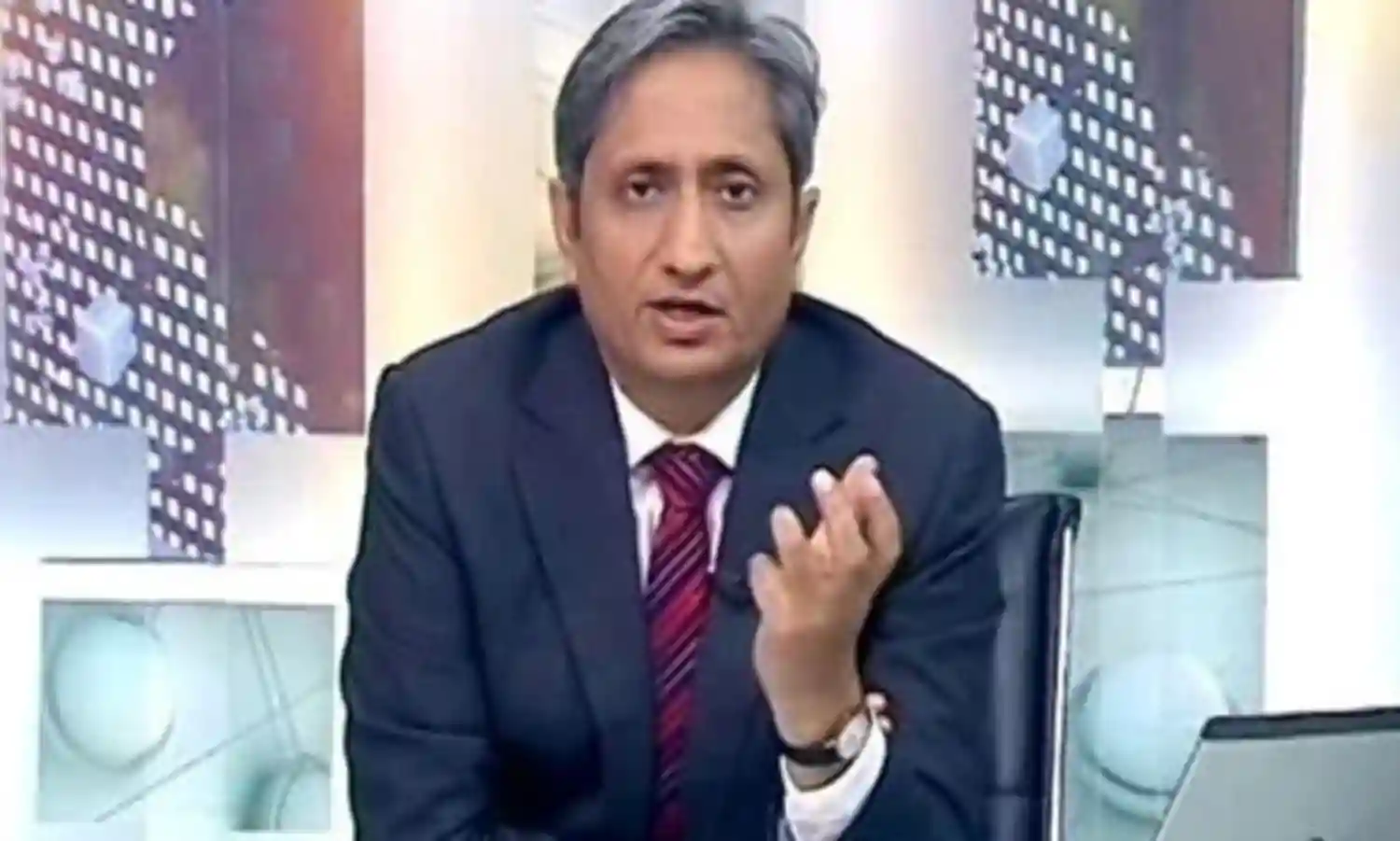SPOTLIGHT - on NDTV
First in the series of an irregular column Spotlight

At a time when journalism is taking a beating, and freedom of expression is more jeopardised than ever before, the big money take over of NDTV has created a storm of empathy and protest. Tears are being shed as in the cacophony of hate, NDTV did keep the language polite, and tried more than the others ( their minus becomes a 100 per cent even if the figures rise to positive single digits) to bring out the stories that are usually blacked out. So the fear is that all this will be blocked out with the Adani take over.
Most tears, however, are being shed for Ravish Kumar and rightfully so. He brought in this delightful journalistic mix of opinion with news, did not hesitate to say it as it is, remained courageous and honest to the profession regardless of the trolling and the immeasurable pressure, and really in today's India is undoubtedly the most talented and solid news anchor. Those who believe that it was the Hindi NDTV that really hurt, and made the takeover inevitable, seem to know what they are talking about. As it was not NDTV per se but NDTV Hindi that stood out as a reminder of journalism (now described as old journalism) where the poor mattered, and where facts were respected, and where hate was exposed and denounced.
So what has really happened. Let's put it simply as figures confound me as much as they do you, and it is necessary to know what is what. To put it simply and in layman's language — and for godsakes Mr Adani and Mr Ambani don't sue me for this — NDTV was part of the big networks cabal after it started decades ago when journalism was closer to facts and the truth than it is now.
Little to differentiate it with the other channels really in terms of news at that time, with enough star anchors and shows to keep it very much in the business. It was close to the establishment then, as most television businesses are for reasons we don't have to look far to find. Prannoy and Radhika Roy were liberal entrepreneurs, giving reporters their space, and anchors their days in the sun. Generous and personable, they created one of the few newsrooms where the owners did not strut around abusing people..(believe me I have seen abusive television newsrooms)... even if some anchors did. Those were happy times.
Then for some reason or the other, NDTV started losing money. I can't understand the financial details but I am sure the many reports in print will point those of you interested in some direction or the other. Remember, like all television houses, NDTV too became big business, joining the ranks of the powerful even if not so beautiful. And of course, as per the characteristic that defined TV, it remained largely establishment even as it did not hesitate to critique every now and again. That the establishments then were largely liberal, or at least allowed friends their space, worked well.
Anyways to cut the long story short, NDTV went into really serious financial problems. A big industrialist friend —economic experts insist it was Ambani but who am I to say–gave them a huge loan with the condition that if they did not pay back the loan, it would convert itself into shares. All perfectly legal, and there is a financial jargon which would air my expertise, except that neither you nor I will understand it. So there it stood, the loan as shares controlled by the company that had given the loan.
Some experts insist this in effect meant that Ambani had secured NDTV's back as it were. And all would have been well had the other big industrialist (there are really only two at the top these days, something like Times of India and Hindustan Times jostling for top ranking ) not come along and decided to acquire that company, and through it NDTV.
So that's the story really. The rest is detail. The Roys said they were not informed, and had no idea this was happening. But now they know, and so does everyone else. It could all have happened long ago, and the question I would really like to get an answer to is why didn't it. I think that in itself will be a very interesting story.
Meanwhile, we can all hold hands and shed tears and remember John Pilger's famous quote, " It's only when journalists understand the role they play in this propaganda, it's only when they realize they can't be both independent, honest journalists and agents of power, that things will begin to change."



